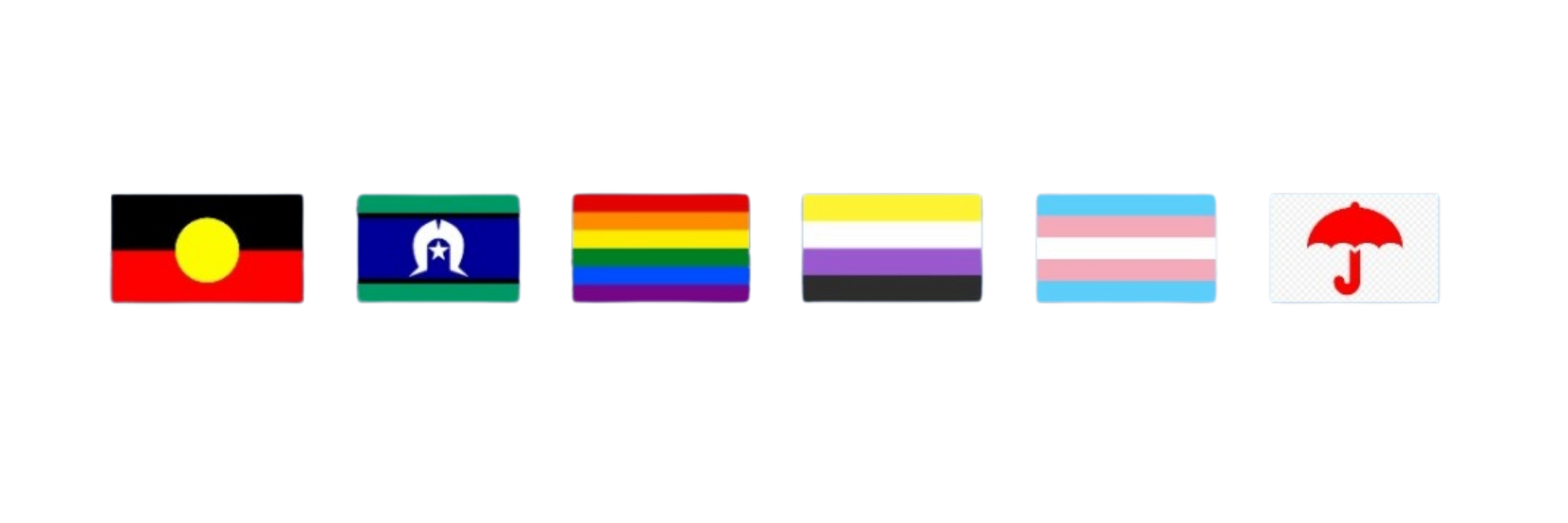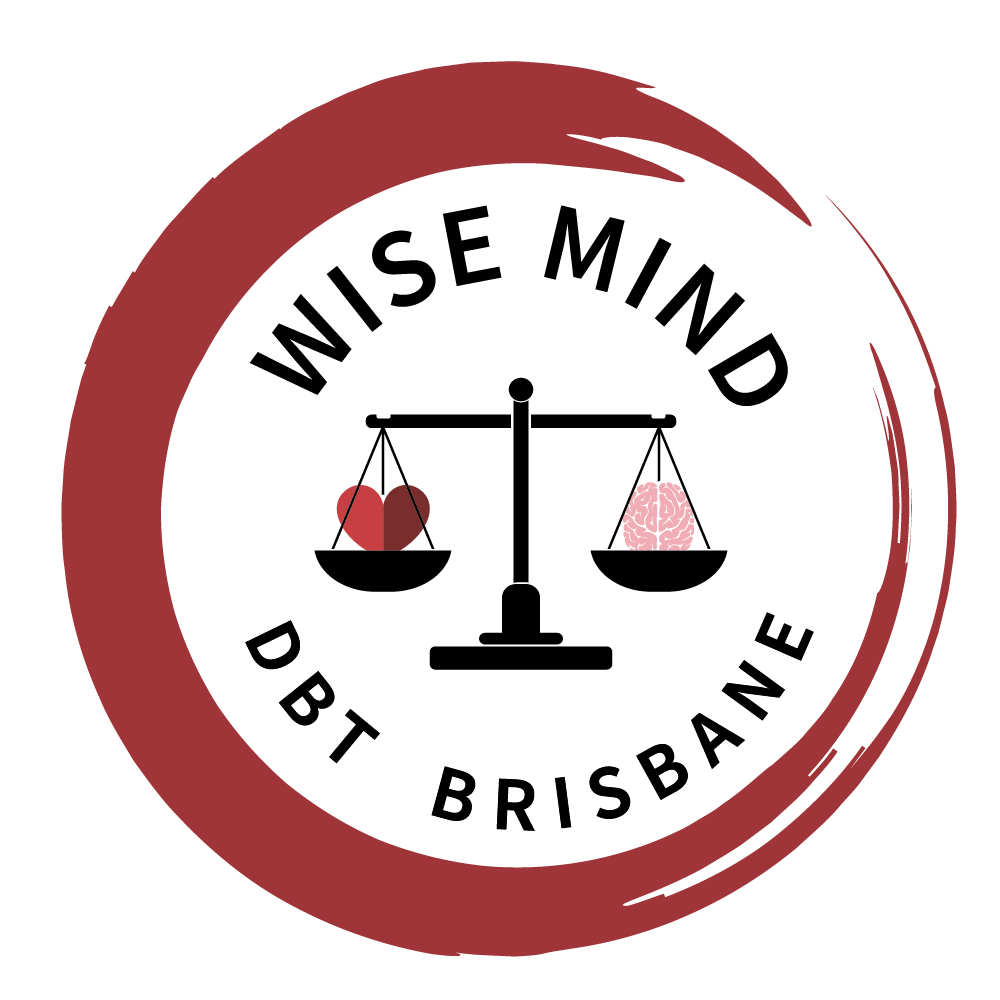Individual Therapy
Individual DBT Therapy focuses on your needs and values.
At Wise-Mind DBT Brisbane, we pride ourselves on delivering a comprehensive and highly individualised approach to mental health through our Individual DBT Therapy. In this specialised treatment, our primary focus is on understanding and addressing your unique needs and values.
We recognise that each person's journey is distinct, and our commitment is to provide a confidential, one-on-one setting where you can explore your challenges, navigate emotional triggers, and identify and modify behavioral patterns that may be hindering your well-being.
We prioritise building a therapeutic alliance that fosters trust, openness, and a shared commitment to your mental health journey.
This personalised connection ensures that the individual therapy sessions are tailored to meet your specific needs and goals.
Therapy for BPD and C-PTSD
Dialectical Behaviour Therapy (DBT) is an evidence-based psychotherapy developed by Dr. Marsha Linehan in the late 1980s. Originally designed to treat Borderline Personality Disorder (BPD), DBT has since been adapted for other conditions, including Complex Post-Traumatic Stress Disorder (C-PTSD). DBT combines cognitive-behavioural techniques with mindfulness practices to help individuals manage intense emotions, improve relationships, and build a life worth living.
Borderline Personality Disorder
BPD is characterised by intense emotional instability, impulsive behaviours, and unstable relationships. DBT directly targets these symptoms through its emotion regulation and distress tolerance modules. By teaching individuals how to identify, understand, and manage their emotions, DBT helps reduce the emotional volatility that underlies many of the challenges faced by those with BPD.
Reducing Self-Harm and Suicidal Behaviours
One of the hallmark features of BPD is a high prevalence of self-harm and suicidal behaviours. DBT has been shown to significantly reduce these behaviours by providing individuals with alternative coping strategies and enhancing their ability to tolerate distress.
Complex Post-Traumatic Stress Disorder
C-PTSD arises from prolonged or repeated trauma, often leading to difficulties with emotional regulation, self-perception, and relationships. DBT’s focus on emotion regulation and mindfulness is particularly beneficial for individuals with C-PTSD, as it helps individuals gain control over their emotional responses and reduce trauma-related symptoms.
Building Resilience and Self-Compassion
DBT’s skills in distress tolerance and mindfulness foster resilience by teaching individuals how to cope with distressing memories and emotions without becoming overwhelmed. Additionally, DBT’s emphasis on radical acceptance and self-compassion supports healing from trauma by encouraging a non-judgmental stance towards oneself.
What does the research say?
Numerous studies have shown the effectiveness of DBT in treating BPD and C-PTSD. For example, Linehan et al. (2006) found that individuals with BPD who underwent DBT experienced significant reductions in self-harm, suicidal ideation, and psychiatric hospitalisations. Similarly, research by Harned et al. (2012) indicated that DBT effectively reduces trauma-related symptoms and improves overall functioning in individuals with C-PTSD.
Therapy for Dissociation and Dissociative Disorders
Dissociative Disorders, including Dissociative Identity Disorder (DID) and Depersonalization/Derealization Disorder, are characterised by disruptions or discontinuities in consciousness, identity, memory, and perception. DBT’s mindfulness module is particularly beneficial for individuals with dissociative disorders as it promotes grounding techniques and present-moment awareness, helping to counteract dissociative episodes.
Enhancing Emotion Regulation
Individuals with dissociative disorders often struggle with intense, overwhelming emotions that can trigger dissociative responses. DBT’s emotion regulation skills help individuals identify, understand, and manage these emotions, reducing the need for dissociation as a coping mechanism. By learning to tolerate and regulate their emotions, individuals can experience fewer dissociative episodes and maintain greater continuity of consciousness.
Building Distress Tolerance
DBT’s distress tolerance module equips individuals with skills to endure distressing situations and emotions without resorting to dissociation. Techniques such as grounding exercises, distraction methods, and self-soothing strategies help individuals remain connected to the present moment and reduce the frequency and severity of dissociative episodes.
Therapy for Anxiety Disorders
Anxiety disorders, including Generalised Anxiety Disorder (GAD), Panic Disorder, and Social Anxiety Disorder, are characterised by excessive fear and worry. DBT’s mindfulness module is particularly effective in helping individuals with anxiety disorders. By promoting present-moment awareness, mindfulness reduces the rumination and catastrophic thinking patterns that often exacerbate anxiety.
Enhancing Emotion Regulation
Individuals with anxiety disorders often struggle with intense and overwhelming emotions. DBT’s emotion regulation skills teach individuals how to identify, understand, and manage their emotions effectively. Techniques such as emotion labelling, checking the facts, and opposite action can help individuals reduce the intensity of their anxiety and respond more adaptively.
Building Distress Tolerance
DBT’s distress tolerance module equips individuals with skills to endure distressing situations and emotions without becoming overwhelmed. Techniques such as radical acceptance, distraction, and self-soothing help individuals tolerate anxiety-provoking situations, reducing the likelihood of avoidance which can exacerbate anxiety.
What does the research say?
Numerous studies have shown the effectiveness of DBT in treating dissociative and anxiety disorders. Studies indicate that DBT can effectively reduce anxiety symptoms and improve overall functioning. For example, Lanius et al. (2014) found that integrating DBT techniques with standard treatment protocols for dissociative disorders led to significant reductions in dissociative symptoms and improvements in emotional regulation. Additionally, a study by Kocovski et al. (2013) demonstrated that integrating DBT techniques with standard treatment protocols for social anxiety disorder led to significant reductions in anxiety symptoms and improvements in social functioning.
If you would like to know more please use the Register Your Interest form, or phone us to book an appointment.
Need More Info?
Contact Us
Thanks for your message!
I'll get back to you as soon as I can.
Please try again later.
In the spirit of reconciliation Wise-Mind DBT Brisbane acknowledges the Traditional Custodians of country we live and work. We acknowledge the Yuggera and Turrbal peoples and their connections to land, sea and community. We pay our respect to their Elders past and present and extend that respect to all Aboriginal and Torres Strait Islander peoples today.
We acknowledge that sovereignty was never ceded.

Group Skills Programs
0478 589 673
admin@wise-mind.com.au
141 Melbourne Street,
South Brisbane 4101
All Rights Reserved | Wise-Mind DBT Brisbane

